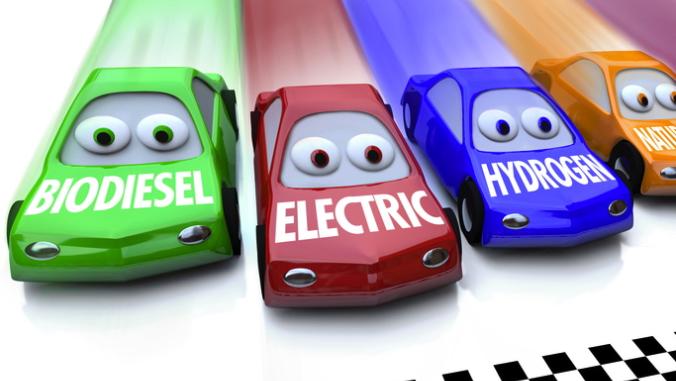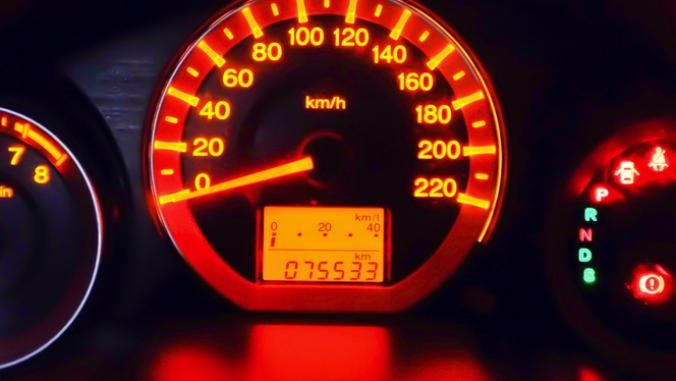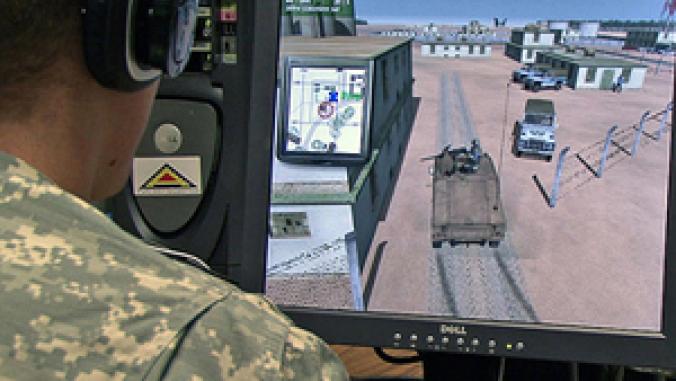Live From Ceres: Climate Change Requires Bold Thinking
Earth Policy Institute Lester Brown and PG&E CEO Peter Darbee argued Thursday that bold actions are required to address climate change at the level needed to preserve civilization.

Harnessing solar power from space. Plug-in hybrid electric vehicles (PHEV) accounting for the majority of vehicles on the road by 2020. Getting involved in one's community to develop a world-class recycling project.
These are examples of bold steps society needs to take to address the challenges of climate change and resource depletion. Action begins at the personal level yet the stakes couldn't be higher collectively, according to Lester Brown, author and founder of the Earth Policy Institute.
"Most of us in this room talk about saving the planet but what we're really talking about is saving civilization itself," Brown said Thursday during the opening keynote speech on the second day of the annual Ceres conference in San Francisco. "If we continue as business-as-usual or anything close to it, climate change will become so disruptive that the stresses on civilization will probably be unmanageable."
Already the signs of ecological distress can be found in all corners of the world, Brown said, from melting glaciers in China threatening the country's ability to grow grain in some regions to a dwindling underground aquifer that's sending Saudi Arabia scouting fertile land in other countries to grow its food.
At the same time, glimmers of innovation and ambition are fueling a new approach to renewable energy and energy efficiency, including PHEVs and a massive expansion of wind, solar and geothermal in places as far-flung as Algeria, Texas and Turkey.
The theme of bold thinking underscored the conference Thursday. Examples included PG&E's plan to buy 200 megawatts of solar energy that is to be generated in space and beamed down to earth beginning in 2016. The utility announced it signed a carefully structured contract for the deal this week.
"It may work, it may not," PG&E CEO Peter Darbee said after Brown's speech. "So we structured a contract where we only pay for the energy to the extent that we get it. There's no risk for us. There's no risk for ratepayers along the way so why shouldn't we enter into a contract so long as we ensure that it operates safely for the public? That's what we required of them."
Darbee admits many think PG&E "has lost it with this one," he said. "A lot of people think the CEO is crazy, but that's what bold is all about."
Darbee scoffed at the naysayers who claim climate change will cost too much to address. "That is nonsense and the people of the world who say it's too expensive don't have a clue about the expense of not dealing with this problem," he said.
The costs go beyond dollars and cents, Brown said.
"From time to time, I go back and read about earlier civilizations that have declined and collapsed," he said. "Those whose archeological sites we study today, one of the themes that keeps coming up is that the most common reason for civilization declines has been food shortages."
Until recently he rejected the idea that the food system could be our undoing.
"But as a I began to think about it more I realized that the trends -- the environmental trends underlying our food system -- are increasing in number and we have not reversed a single one," Brown said.
He pointed to soil erosion, melting glaciers, rising seas, desertification,and collapsing fisheries, all of which impact food systems. The signs of stress are evident in the case of grains, whose prices have increased dramatically in the face of rising demand as environmental conditions increasingly impair the capacity to grow crops.
"If we can't turn these trends around, we're in trouble," Brown said, "just as the earlier civilizations were."
These are examples of bold steps society needs to take to address the challenges of climate change and resource depletion. Action begins at the personal level yet the stakes couldn't be higher collectively, according to Lester Brown, author and founder of the Earth Policy Institute.
"Most of us in this room talk about saving the planet but what we're really talking about is saving civilization itself," Brown said Thursday during the opening keynote speech on the second day of the annual Ceres conference in San Francisco. "If we continue as business-as-usual or anything close to it, climate change will become so disruptive that the stresses on civilization will probably be unmanageable."
Already the signs of ecological distress can be found in all corners of the world, Brown said, from melting glaciers in China threatening the country's ability to grow grain in some regions to a dwindling underground aquifer that's sending Saudi Arabia scouting fertile land in other countries to grow its food.
At the same time, glimmers of innovation and ambition are fueling a new approach to renewable energy and energy efficiency, including PHEVs and a massive expansion of wind, solar and geothermal in places as far-flung as Algeria, Texas and Turkey.
The theme of bold thinking underscored the conference Thursday. Examples included PG&E's plan to buy 200 megawatts of solar energy that is to be generated in space and beamed down to earth beginning in 2016. The utility announced it signed a carefully structured contract for the deal this week.
"It may work, it may not," PG&E CEO Peter Darbee said after Brown's speech. "So we structured a contract where we only pay for the energy to the extent that we get it. There's no risk for us. There's no risk for ratepayers along the way so why shouldn't we enter into a contract so long as we ensure that it operates safely for the public? That's what we required of them."
Darbee admits many think PG&E "has lost it with this one," he said. "A lot of people think the CEO is crazy, but that's what bold is all about."
Darbee scoffed at the naysayers who claim climate change will cost too much to address. "That is nonsense and the people of the world who say it's too expensive don't have a clue about the expense of not dealing with this problem," he said.
The costs go beyond dollars and cents, Brown said.
"From time to time, I go back and read about earlier civilizations that have declined and collapsed," he said. "Those whose archeological sites we study today, one of the themes that keeps coming up is that the most common reason for civilization declines has been food shortages."
Until recently he rejected the idea that the food system could be our undoing.
"But as a I began to think about it more I realized that the trends -- the environmental trends underlying our food system -- are increasing in number and we have not reversed a single one," Brown said.
He pointed to soil erosion, melting glaciers, rising seas, desertification,and collapsing fisheries, all of which impact food systems. The signs of stress are evident in the case of grains, whose prices have increased dramatically in the face of rising demand as environmental conditions increasingly impair the capacity to grow crops.
"If we can't turn these trends around, we're in trouble," Brown said, "just as the earlier civilizations were."





